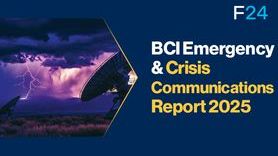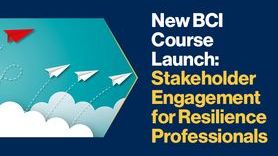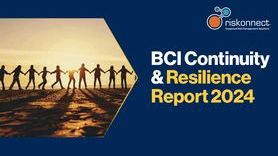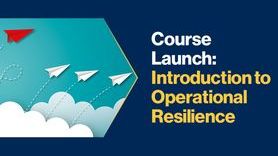Oil tanker fire raises potential environmental and continuity impacts
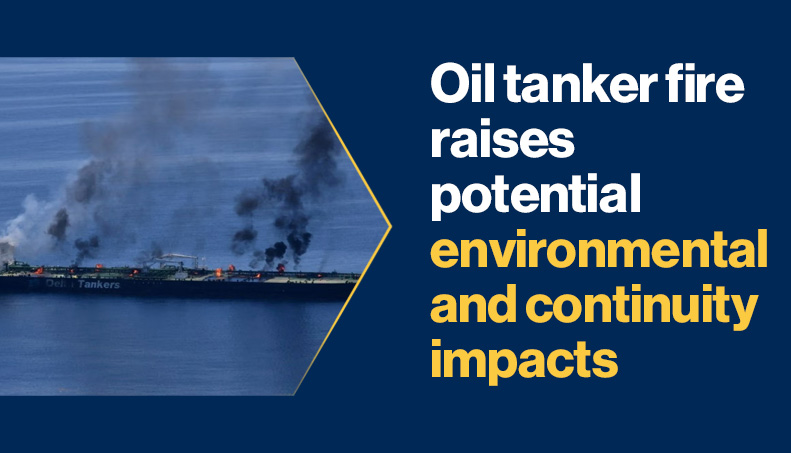
According to the US Pentagon, an oil tanker attacked by Yemen’s Houthi rebels last week is still on fire in the Red Sea and is possibly leaking oil.
The stricken ship is reportedly carrying 150,000 tonnes of crude oil which, if spilled, has the potential to create the largest spill in recorded history covering an area four times larger than that of the Exxon Valdez disaster in 1989. According to the UK Maritime Trade Operations Office, the ship was hit by unidentified projectiles which left it without engine power. 25 crew members were evacuated by a European warship, but the ship was attacked again, creating a fire. Salvage attempts to rescue the MV Sounion have so far been prevented by the Houthis.
A Pentagon spokesman said the US was working with regional partners to attempt to mitigate potential environmental impacts.[1]
This attack, and others that have been carried out in the Red Sea over the past year, not only has the potential to create a large-scale environmental disaster, but also the potential to cause significant economic damage to organizations, not least on the global supply chain as a result of shipping companies re-routing journeys to avoid the Red Sea. BCI research[2] has shown that re-routing can lead to longer transit times and higher costs for customers and that in the future, geopolitical tensions fuelled by violence have the potential to lead to protectionism, export controls, and increased tariffs: all factors that further disrupt transportation routes and supply chains. These attacks can also have consequences on the workforce in terms of isolation - and even victimisation - of certain ethnic groups that can create safety issues, productivity problems, as well as threatening the mental wellbeing of some staff.
To address these issues, business continuity practitioners can audit supply chains to uncover whether transportation routes are, or have the potential to be, affected, and plan strategies to mitigate potential rising costs and delays of goods and services. Organizations can also seek to ensure the wellbeing of staff affected by the Houthi attacks by proactively offering support and ensuring remote worker resilience is in place. Effective horizon scanning is also an effective strategy that identifies potential events that might worsen Red Sea attacks or disrupt alternative transportation routes. To avoid PR failures, such as BP’s response to the Deepwater Horizon scandal that caused vast reputational damage, developing a sound, pre-prepared PR strategy that can uphold a reputation and boost confidence from both customers and investors’ perspectives, can also benefit business continuity plans.
The BCI’s current survey is Horizon Scan 2024. This ten-minute pivotal survey uncovers the main current and future threats organizations face and analyses their impacts. You can contribute your insights and experiences here.


